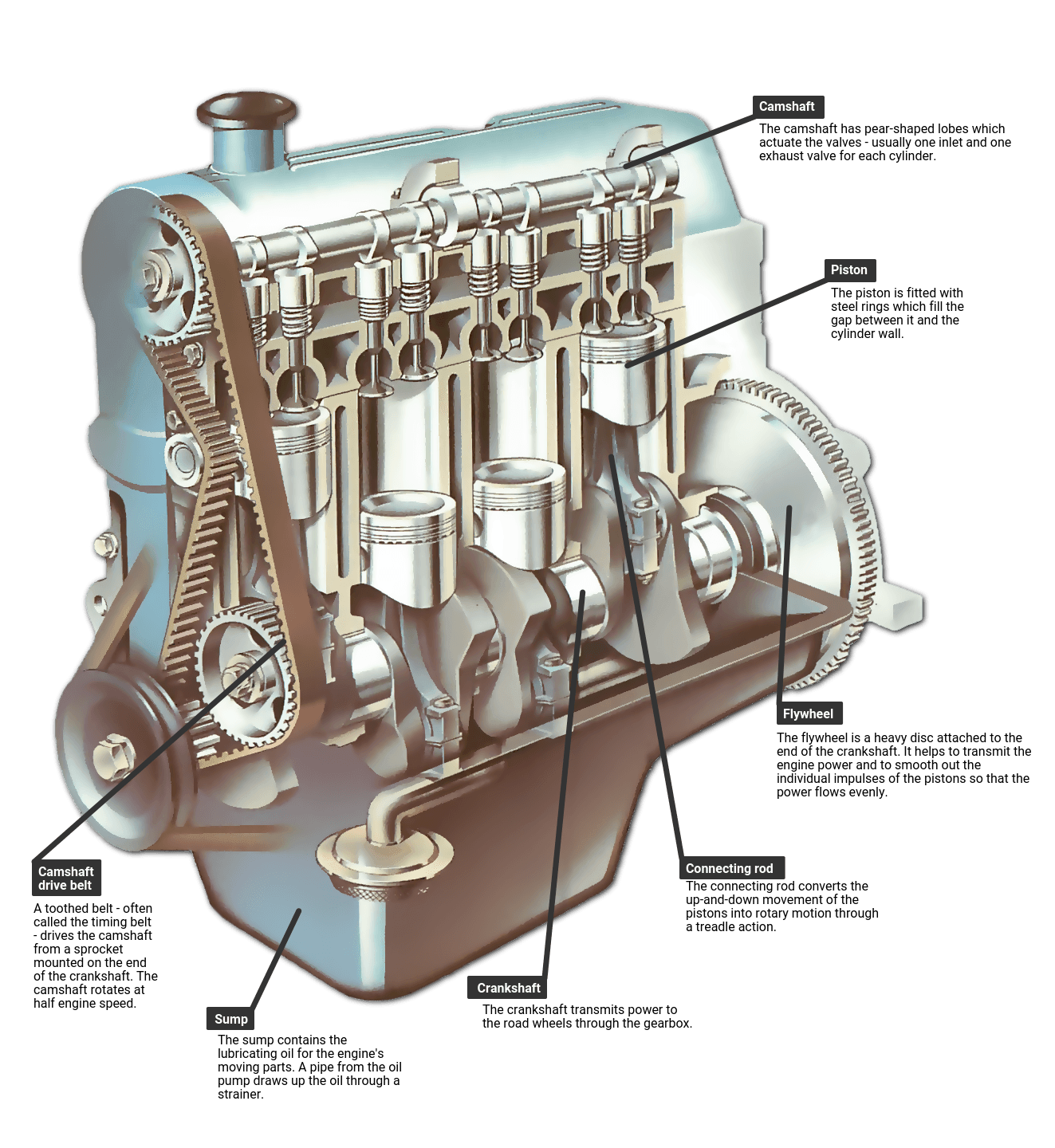Engines For Africa: Top Choice for Automotive Enthusiasts
Engines For Africa: Top Choice for Automotive Enthusiasts
Blog Article
A Full Overview to Selecting the Right Engine for Your Task
Selecting the appropriate engine for your project is an essential decision that can substantially impact its total success. It is necessary to diligently define your job needs, review performance requirements, and take into consideration user-friendliness alongside other vital factors. In addition, recognizing the area assistance readily available and inspecting cost effects can further fine-tune your selection. Each of these components plays a critical role in guaranteeing that your chosen engine not just meets immediate objectives however also lines up with long-term desires. As we check out these factors to consider, you might find that the subtleties of each aspect expose greater than at first expected.
Define Your Project Needs
Defining your task needs is a vital action in choosing the suitable engine for effective application. An extensive understanding of your project's goals will certainly lead you in identifying the attributes and capabilities called for from an engine. Begin by describing the extent of your task, consisting of the wanted capability, target market, and the particular results you aim to achieve.
Next, think about the technical demands that straighten with your task objectives. This consists of evaluating the compatibility of the engine with existing systems, in addition to the shows languages and frameworks that will certainly be made use of. Furthermore, evaluate the level of scalability called for to suit future development or changes popular.
Spending plan constraints additionally play a vital function in defining your task needs. Establish a clear financial structure to assist your decision-making procedure, ensuring that the engine selected fits within your spending plan while supplying the necessary functionality.
Evaluate Performance Demands

Following, consider the scalability of the engine. Assess whether it can deal with boosted work as your task grows. Engines that support straight scaling are often more effective for larger applications. In addition, review the engine's efficiency under different conditions, such as peak use scenarios, to ensure it meets your reliability standards.
Consider Ease of Usage
While technological requirements are crucial, the convenience of use of an engine can considerably impact the development procedure and general job success. An intuitive user interface, clear documents, and structured workflows can significantly reduce the learning contour for programmers, allowing them to concentrate on imagination and problem-solving rather than facing complicated tools.
When reviewing an engine's simplicity of use, take into consideration the onboarding experience. A well-structured introduction, full with tutorials and sample tasks, can assist in a smoother transition for browse around these guys brand-new individuals. Additionally, the clearness and comprehensiveness of the engine's documentation play a vital duty; thorough overviews and API references can encourage designers to repair and carry out features successfully.
One more facet to think about is the engine's customization abilities. An engine that permits simple modifications can be a lot more easy to use, as developers Visit Website can customize it to fit their certain needs without substantial trouble. Lastly, evaluate the operations integration with platforms and devices you currently utilize. A cohesive environment can enhance efficiency and minimize rubbing throughout the growth process. Eventually, picking an engine that prioritizes simplicity of usage can lead to a much more satisfying and effective advancement experience.
Assess Community and Support
The toughness of an engine's area and support network can substantially affect a designer's experience and success. A vibrant neighborhood typically indicates a riches of common expertise, resources, and repairing assistance that can boost your task's advancement procedure. When examining an engine, consider the dimension and task degree of its community. Bigger areas normally use extra discussion forums, tutorials, and third-party plugins, allowing programmers to find services extra successfully.
In addition, assess the accessibility of official assistance channels. Reliable documentation, responsive consumer assistance, and regular updates are crucial for attending to technical problems and maintaining your job on track. Engines For Africa. Energetic neighborhoods also cultivate cooperation, giving possibilities for networking and feedback, which can be very useful, especially for small groups or independent programmers
Furthermore, check out the visibility of community-run occasions, such as meetups or hackathons. These celebrations can enhance your understanding of the engine while attaching you with prospective partners and experienced individuals. In recap, a durable area and assistance system not only simplify advancement however additionally produce an atmosphere for discovering and innovation, eventually improving the probability of your job's success.
Contrast Expense and Licensing Choices
Budget plan factors to consider play a crucial duty in choosing the appropriate engine for your task, as the price and licensing alternatives can substantially influence both short-term expenses and long-term viability. Engines For Africa. Different engines offer varying rates frameworks, which can consist of single purchase fees, membership versions, or revenue-sharing arrangements based upon your job's incomes

Accrediting alternatives additionally differ considerably. Some engines are open-source, providing flexibility and community-driven support, while others might call for exclusive licenses that limit use and circulation. Comprehending the implications of each licensing model is essential, as it impacts ownership rights, future scalability, and possible legal obligations.
Verdict
Finally, selecting the ideal engine for a job necessitates a thorough analysis of specified project demands, performance needs, simplicity of usage, neighborhood assistance, and expense considerations. By methodically addressing these essential elements, decision-makers can ensure positioning with both future and existing project needs. A knowledgeable choice inevitably enhances the chance of project success, making it possible for effective source allocation and making the most of possible outcomes within the specified financial constraints.
Picking the appropriate engine for your job is a critical decision that can dramatically impact its general success.Specifying your job requires is a critical step in choosing the ideal engine for successful application. A thorough understanding of your task's purposes will assist you in recognizing the attributes and abilities required from an engine.Once you have a clear understanding of your job requires, the following action is to review the efficiency requirements of the engine.In final thought, choosing the ideal engine for a project necessitates a complete analysis of specified project needs, performance requirements, ease of use, neighborhood support, and expense factors to consider.
Report this page